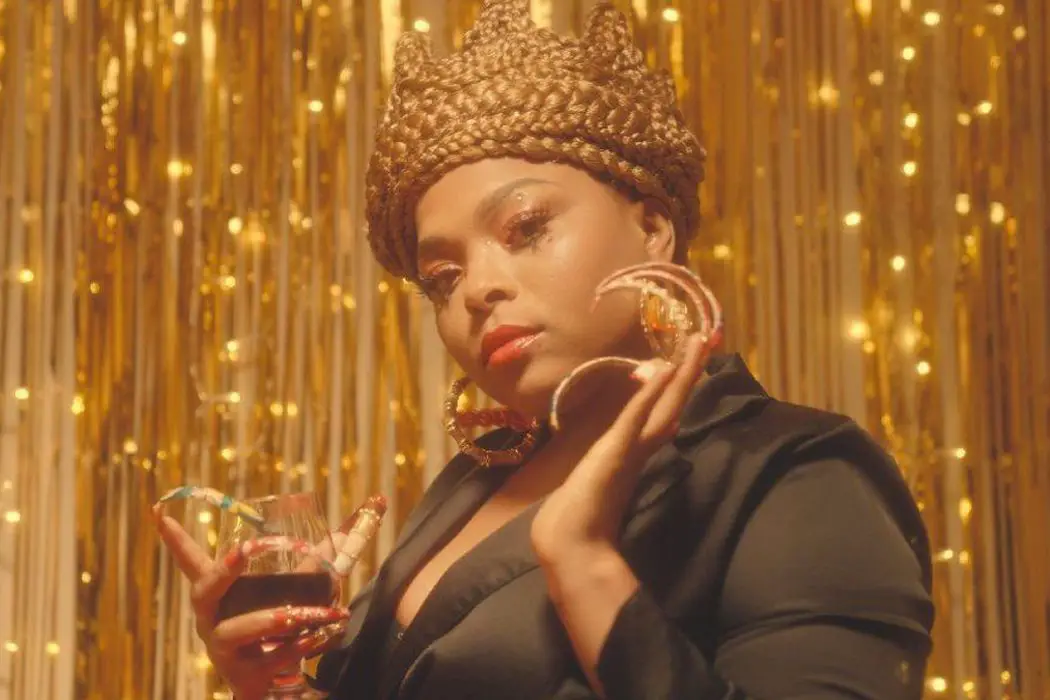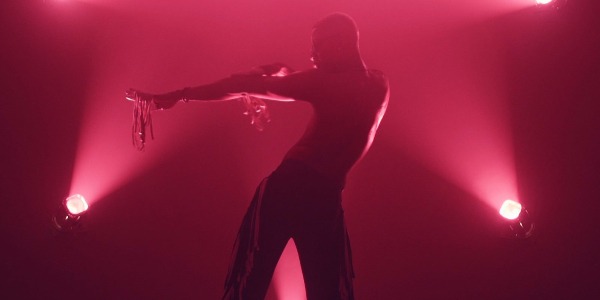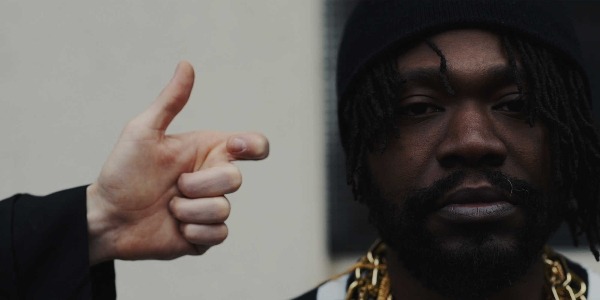Melbourne International Film Festival 2020: Interview with TT The Artist, Director of DARK CITY BENEATH THE BEAT

Alex is a 28 year-old West Australian who has a…
From frame one, the vibrant, confectionary colour palette of TT The Artist’s Dark City Beneath The Beat instantly seizes your sights – and then the magnificent music kicks in. The Baltimore-based singer/rapper/producer is no stranger to making captivating, energetic works of art, and her debut music documentary, a whip-smart, kaleidoscopic assault on the senses that effortlessly honours the divergency of Baltimore’s beloved musical subculture and the contemporary social issues that they are in defiance/ celebration of, is another grand achievement. Unfolding like one kick-ass Youtube playlist that opens the audience to a whole new underground realm of musicians, dancers, artists and hundreds of other talents, Dark City Beneath the Beat is a whole-hearted, bona-fide firework of a feature that acts as a necessary reminder of how important the arts, and the communal spaces that they occupy, are to our collective social and individual spirits.
As one of the films programmed at Melbourne International Film Festival 68½, I had the chance to talk with TT The Artist about the creation of Dark City Beneath the Beat, her subversive editing choices, the film’s unique approach to capturing the city of Baltimore and the current post-festival distribution plans.
This is Alex Lines for Film Inquiry. What was the inception of Dark City Beneath the Beat?
When I first moved to Baltimore, I was 18. I was a student at the Maryland Institute College of Art, where I was studying fine arts and video. I first encountered club music through the radio. It reminded me so much of the music that I grew up in Florida. When I saw the culture in the nightclub scene, the dancers and everything, I was so inspired that I was like, “This has to be documented.” The energy was really what attracted me to the culture. I also realized, being an artist in Baltimore, that a lot of the scene is underground. There isn’t a lot of resources for artists there.
I wanted to create a film that would promote that and show that Baltimore is a city that is thriving with art and thriving with culture. That’s really what essentially was the beginning of me wanting to do Dark City Beneath the Beat. I had the idea in 2006 when I was a college student, It was my senior year and I didn’t have any resources at the time. 2011 was when I actually made my first attempt to start production. Just about everything could go wrong, we didn’t have a budget, I had no idea what I was doing. We ended up taking a little more time and started to look into grants that could support the funding for the project. 2017 is when we received our first grant. We were able to start the film.
Then, we received another grant that was able to help us with the production. I was very, very happy that we were able to bring the ideas to life. In 2018, I connected with Artistland Productions and Color Creative. They came on board to help us with the rest of our post-production. It was just so many blessings after that. It did take a little time. I had the idea for at least 10 years. To finally see it completed, and out there and getting good responses, not just in America, but overseas as well, has been just a great, great, great feeling for me.

The film subverts your traditional documentary tropes, can you talk about the film’s unique structure?
The structure itself was me exploring different ways to shoot a film. It all started with the music. My approach to filmmaking was the music first. We created an all-original soundtrack. From the soundtrack, we built the scenes off of that. The music was first and foremost, the most important part of the film. Then, I wanted to integrate colour, and dance and performing. Essentially, you get this montage and mashup of industry people. That’s why I call it an audiovisual experience because it’s the music and then the visual.
I just didn’t want it to fit with the traditional structure of linear documentary editing. As far as the inspirations of mine and influence, I’m a big fan of Spike Lee and the colour palette that he uses, in terms of a legendary black American filmmaker. Then also the film Paris is Burning by Jennie Livingston. I love the way these films documented these subcultures. They felt like timeless pieces. That’s what I really wanted to draw out myself.
You shadowed-directed an episode of Season 4 of Insecure. What would you say were the most important lessons you took away from that experience, especially in regards to how you approached Dark City?
When I got the opportunity to shadow direct for Insecure, I was just so excited to be in a very professional environment. Coming from working with a small crew in Baltimore, to now being on set with a hundred people, it was quite a climate change for me. One of the most important things that I learned was how a team works together, and how everyone has their roles that contribute to a bigger part of the final production.
I really got to learn what a producer does, and know what the art department does, things that I did naturally, but actually understanding that everyone plays an important role in the bigger picture. Each person does their job in a way where it is so important for them to complete it, and bring their best to the production in order for the best outcome. That’s one of the most important things I learned. Also, just connecting, and building and I’m expanding my network was another thing that I learned, because I got to meet so many other creatives in the business.

With many viewers, including myself, watching this film from their homes, I feel it has infused the movie with a post-quarantine poignancy – a true celebration of the arts. With the film starting to hit online film festivals, have you viewed the film differently?
Honestly, the film was finished before COVID. We were supposed to world premier at South by Southwest Film Festival. What is good about it, is that I feel that this time has opened more doors for us, independent filmmakers, to be seen, because people are looking for new ways to experience films and content. I think now is a great time, because we’ve gotten so much more love for our film. Also with the subject matter, we were talking about protesting, and police brutality and all those things, the social climate of not just Baltimore, but of the US.
We were placing it within Baltimore and what young people in Baltimore experience. We allowed the music and the dance to show you that, to show you our frustration. I feel like now has been a great time, because people are consuming more and more online. The online film festivals are giving us even more access to audiences that may not have been able to physically attend the festivals. It’s a shift. It’s definitely a shift in the business, but I see it happening more, even after we’re out of quarantine.
In a previous interview, in regards to Dark City, I read that you said that you’d seen film crews come to Baltimore from all over the world trying to capture the city’s unique music and dance style over the years, but you’ve always felt underwhelmed with their attempts – what element or factor do you feel that they always got wrong or maybe missed?
When people come and they’re not from the city, or haven’t lived there, there definitely is more of a spectator approach, versus being an actual participant. It’s almost like they don’t quite know what they’re capturing, because if you’ve submerged yourself into the culture, you know how to capture the dancers, what moves are important to document and also who the key players are, who are the people and the voices that are pioneering the movement.
I feel like a lot of people that have come to Baltimore, they’ve showed a watered down version of the culture, so to speak. It’s just been one story that’s been told. I think what this film does is, it gives you more insight to the culture in a different way, not just through the music and dance, but also just letting people know that Baltimore has an art museum, Baltimore has different cultural landmarks that are important to the city landscape.
I feel like if you’re not from Baltimore, or haven’t been there, it’s a little bit more of a challenge to navigate and know what things are really going to represent the city. That’s what I felt. That’s what inspired me to do this film in this matter because at the least, you could feel the emotion by watching it. Even if you don’t speak English, or you’re not from the city, the music, and the color and the rhythm is what really, you’re connecting with. I feel like art and music are a universal language. You can hear music, you can hear beats and you can see colours. Those things are very, very key elements in the execution of our city, versus what I’ve seen. Typically, when people come into the city, they just keep it on a surface level. I just wanted to go a little deeper and make it more of an experience.

You collaborated with over 100 Baltimore artists on the film, have they had the chance to see it yet, and what was their reaction?
We had a chance to do a few private screenings through Baltimore. I wanted to share it with the community first, as we had a work in progress. I had so much good feedback and love from the people. Everyone felt honoured. There was a sense of pride after watching it. Kids felt like stars. I just loved to see how happy everyone was to share it. Everyone wanted to share the film. Unfortunately, right now, we’re going through distribution and finding a home for the film.
It’s not out for everyone, which is why they felt it was so important. If you really want to see it, get your ticket to the festival, check it out and then share the trailer as much as possible, is what I’ve been telling people. I really do see a sense of pride. Also, I’m happy to say that many of our artists featured in the film are now getting a lot of new opportunities because are hearing their stories. That was a big goal for me when I set out to do this.
What would say is the key to making a film as fun and energetic as this without undermining the seriousness of the subject matters it touches upon?
I think the key is being honest with yourself and your crew, and with your talent. You don’t want to be invasive and you don’t want to be exploitive. I build real relationships. Everyone in that film, I actually, for the most part, have a relationship with. The more you can take time during that pre-production phase, to actually support other people’s events that you might want to include in your film, or talk to people and really be there for them, I think that’s what ultimately gave me that access and trust from my crew, and from the team and from the cast. I think really building real relationships is an important thing for the success of a film.
Is there any release plans for the film after its festival run?
We are heavily pursuing distribution. We’re hoping to get the film on a platform and find a home for it so that the world can hopefully experience it. As I said, we are working on some other things. I can’t really talk about it right now. We’re definitely hoping to continue to spread the story in other mediums and other formats very soon. there will be, also, the soundtrack coming out once we release the film. A lot of people have been wanting to stream music from the film. There are a few songs that are currently out, that are on the film, but the whole soundtrack will be available once we release the film. We’re very excited about that.
Film Inquiry thanks TT The Artist for taking the time to talk with us.
Dark City Under the Beat played at Melbourne International Film Festival: Virtual Edition this year. For more information about upcoming festival screenings and ticket availability, can visit the film’s Instagram page.
Does content like this matter to you?
Become a Member and support film journalism. Unlock access to all of Film Inquiry`s great articles. Join a community of like-minded readers who are passionate about cinema - get access to our private members Network, give back to independent filmmakers, and more.













